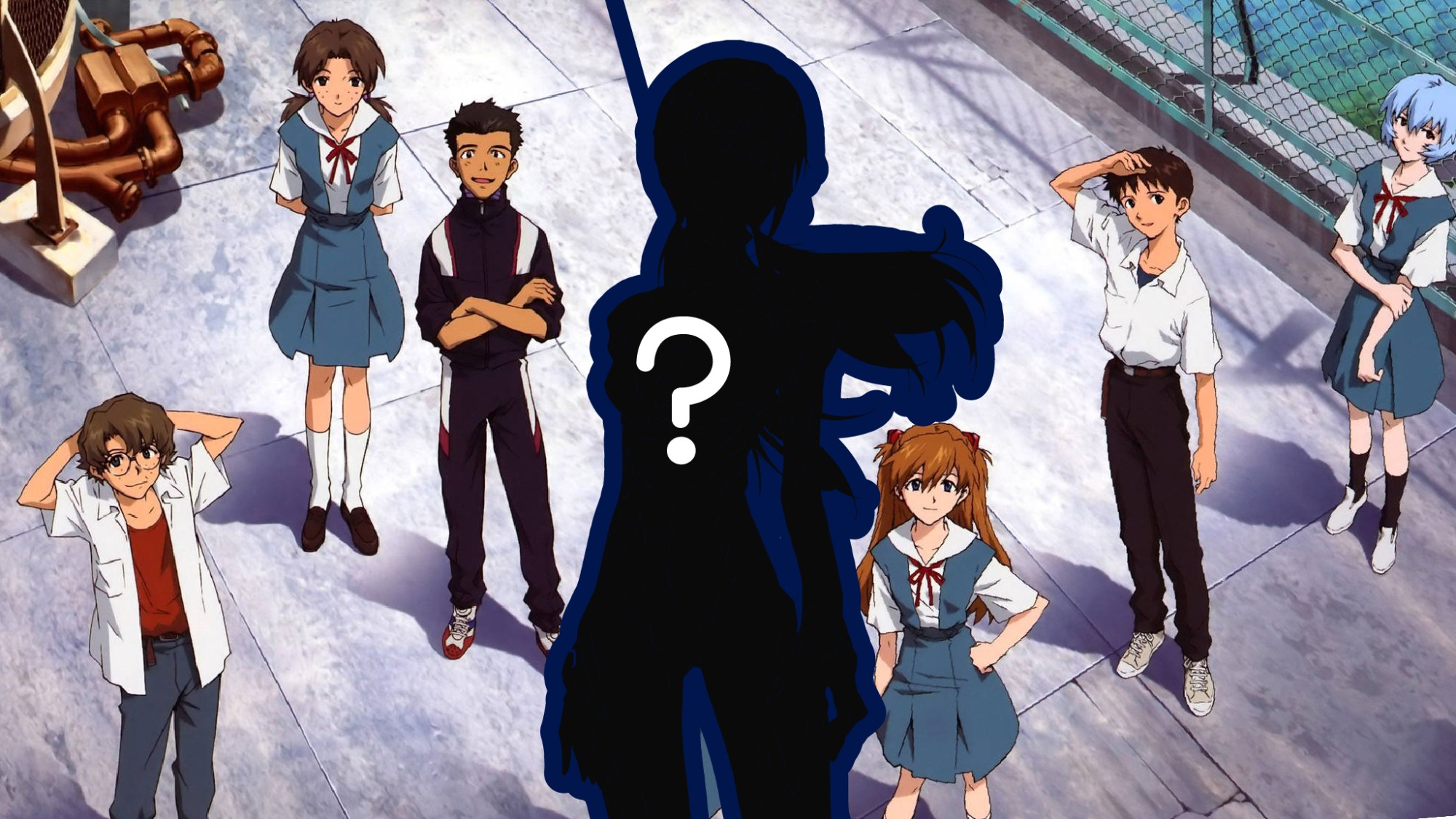
The Evangelion anime series mainly consists of the 1995-1996 original series, Neon Genesis Evangelionthe 1997 film End of Evangelionand the tetralogy Rebuild of Evangelion film series that finished in 2021. Some prefer the original series with its abstract, hopeful ending. Others prefer EoE with its more artistically melancholic take on the Third Impact. And while the Rebuild series has its own fans and inventive merits to the franchise, it introduces one major core plot-shattering character to the franchise as a whole: Mari.
While at face value, Mari Illustrious Makinami seems like an engaging Eva pilot who brings a refreshing air of carefree fun and excitement to the otherwise high-stakes fights against the Angels that terrorize the planet (because she is and does), she’s also unfortunately an unnecessary story element who is actually really problematic to the overall core plot. But in order to understand why Mari breaks these integral plot devices, first, we must analyze what those plot devices are.
Spoiler Warning for the Endings in the Neon Genesis Evangelion Franchise!
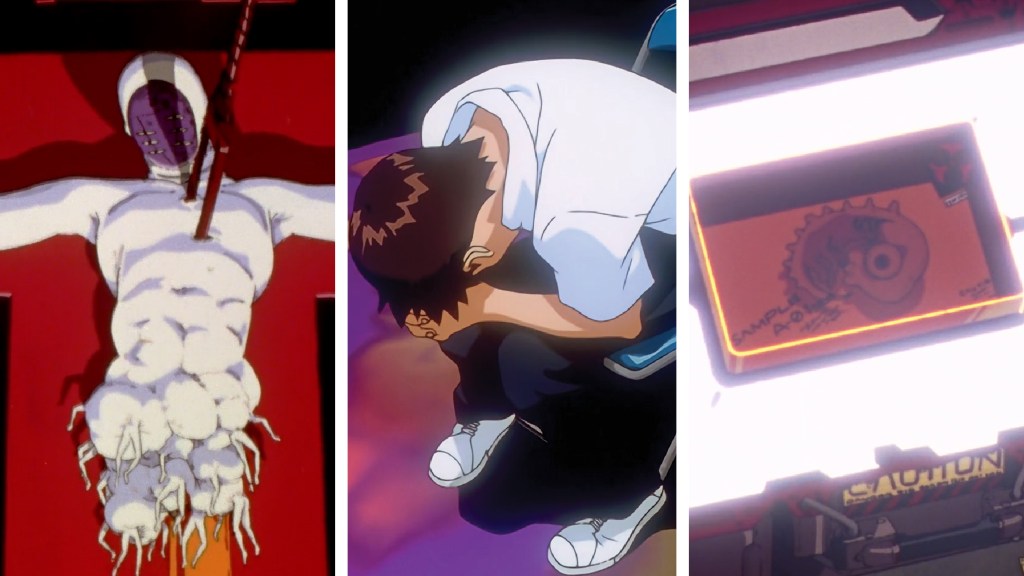
The Core Lore of Evangelion
Throughout the original series and spilling over into EoEthere are three main plot points that are incredibly important to have Evangelion be a coherent storyline: 1. The lore of Adam and Lilith and their connection to the Eva, humanity, and the pilots; 2. How the Eva function based on this relationship and lore; 3. The central theme surrounding Shinji. Though some may argue that with the Rebuilds being separate from the original series as a sort of alternate retelling of the story don’t have to play by the original rules, without these core themes, the entire plot falls apart and the Rebuilds may as well devolve from being a derivative work into being a pastiche.
Adam, the First Angel, represents the potential for life and thus is the progenitor of Angels who possess S² engines/organs as an unlimited energy supply. Lilith, the Second Angel, is the progenitor of mankind, providing a different evolutionary path to humanity who possess reason. Eva are created from Adam to be man’s attempt “to make a man that was like God himself”. Eva are shown as an unholy union of Angel body and Lilin soul created by man that requires a spiritually chaste Lilin pilot. Kaworu eventually comes to the conclusion that he as an Angel himself is actually meant to serve the Lilin just as the Eva are and resolves to spare Shinji; Adam and Lilith as a metaphorical “alpha” and Shinji as the Instrumentality “omega”, if you will.
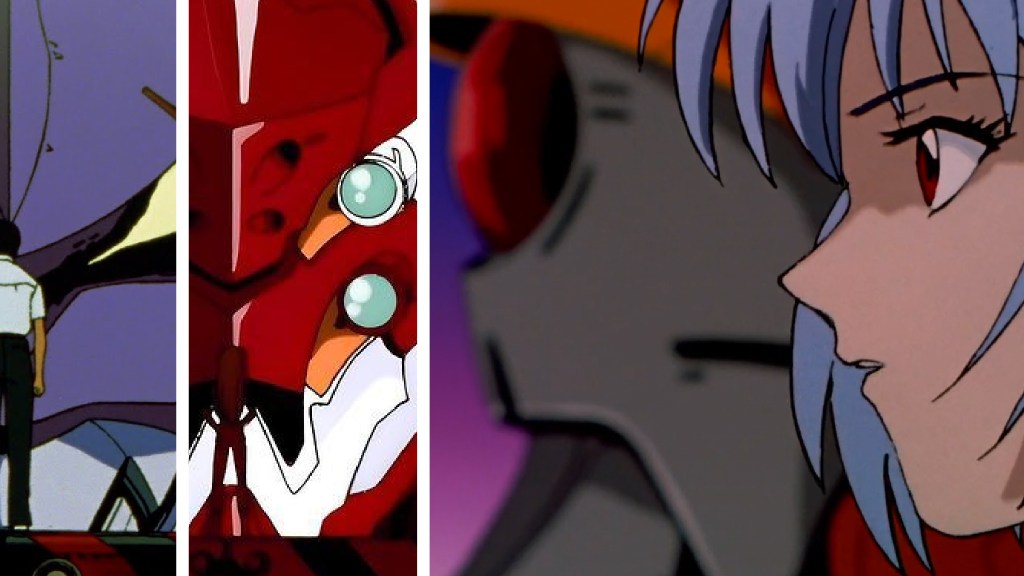
Part of the core plot relies on the pilot characters’, Shinji, Asuka, and Rei’s, connection to their respective Eva Units. Shinji’s Test Type Unit 01 was created out of the accidental merging of Shinji’s mother, Yui’s soul. After such an accident, Rei and Prototype Unit 00 were both created with what Gendo and NERV could salvage from what remained of Yui. Asuka’s Unit 02 was the third Eva created but the “first Production Model Evangelion”, “rectifying” past mistakes with the creation of the Evas by intentionally merging the soul of Asuka’s mother, Kyoko, who committed suicide, with Unit 02.
The plot puts a lot of emphasis on the pilots’ abilities to sync with the Eva, and for good reason. Not only does the functionality of each of the Eva require the crucial connection with Adam and Lilith, but also with their respective pilots, having certain personal connections. The whole point is to have an overarching secret that is later revealed to the pilots as to why they are each specifically chosen to be pilots. This is so important that Rei, Asuka, and Shinji constantly question why they pilot and later have deep introspections on their very existences within the world of the Eva. Asuka herself is even pushed to the brink when her sync ratio eventually hits 0%.
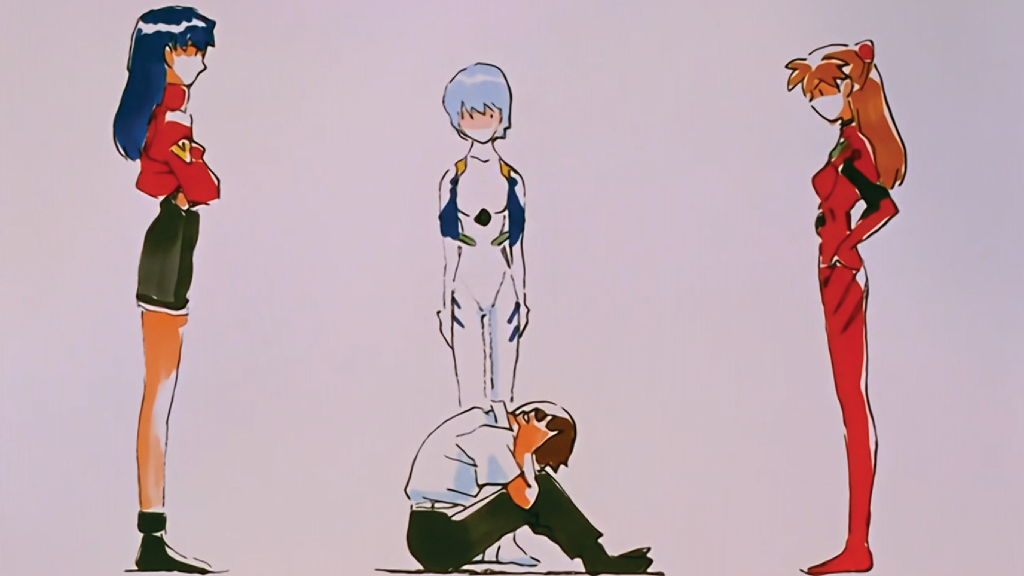
The original plot also relies on the central theme of Shinji eventually going through ego death in order to realize the idea of solipsism and ultimately take responsibility for his own happiness and relationships with others. This is even hypocritically emphasized by Asuka who accuses Shinji of waiting for outside intervention to bring him happiness instead of creating his own means of happiness. Although End of Evangelion passively asserts that “as long as you are alive, you have the chance to be happy”, the end of the original series instead asserts a more active role.
Mari Deconstructs the Entire Series
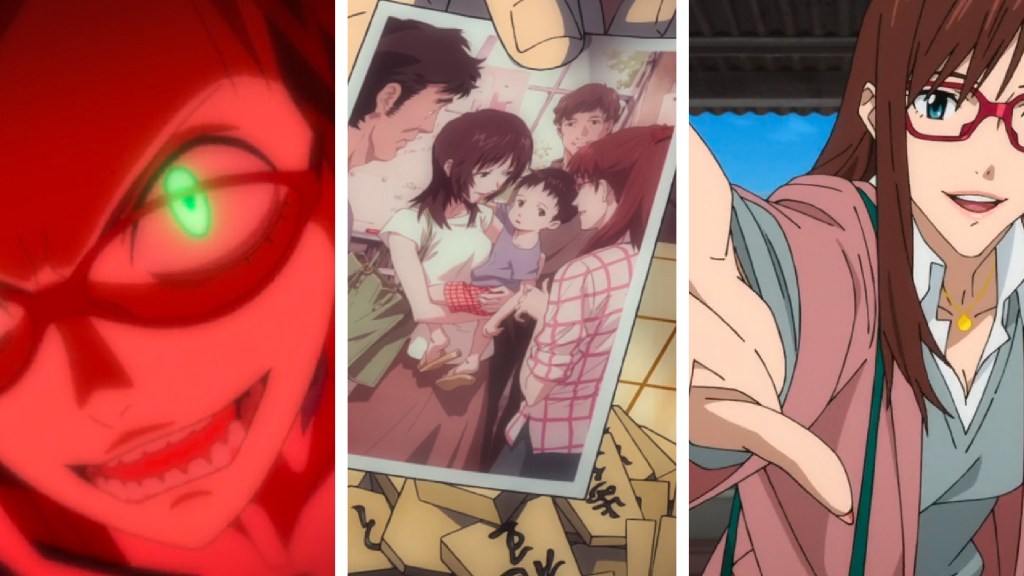
The Rebuild film series takes these crucial core philosophical concepts and trashes them. Why? Mari. Mari is not meant to otherwise exist in the world of Eva. And so, the world was transformed to suit her as an unnecessary character and dismantle the solipsistic theme surrounding Shinji in favor of deconstructing the entire storyline of Shinji himself overcoming his shortcomings. Instead, the film series makes up nonexistent plot devices like the “Key of Nebuchadnezzar” and the “curse of the Eva”, overindulges in other plot devices that are meant to be viewed as exclusive and sacred like entirely scrapping how Eva are even meant to function in tandem with sync ratios, and creates completely nonsensical plot points like naming Gendo the “king of the Lilin”.
Mari is introduced in Evangelion: 2.0 You Can (Not) Advance and immediately sets the precedent of contradictory, nonsensical plot points. When she and Shinji first meet, she makes comment of LCL, which doesn’t make any sense as to why Eva would have that if major plot points like their intimate connection to the pilots, their function with Adam and Lilith, and the over encompassing allegory to the primordial sea are nothing more than superficial at this point. The “curse of the Eva” also only furthers Mari’s vague backstory when she’s shown in a photo to have previously been a colleague of Shinji’s mother.
The Eva are Reduced to Toys
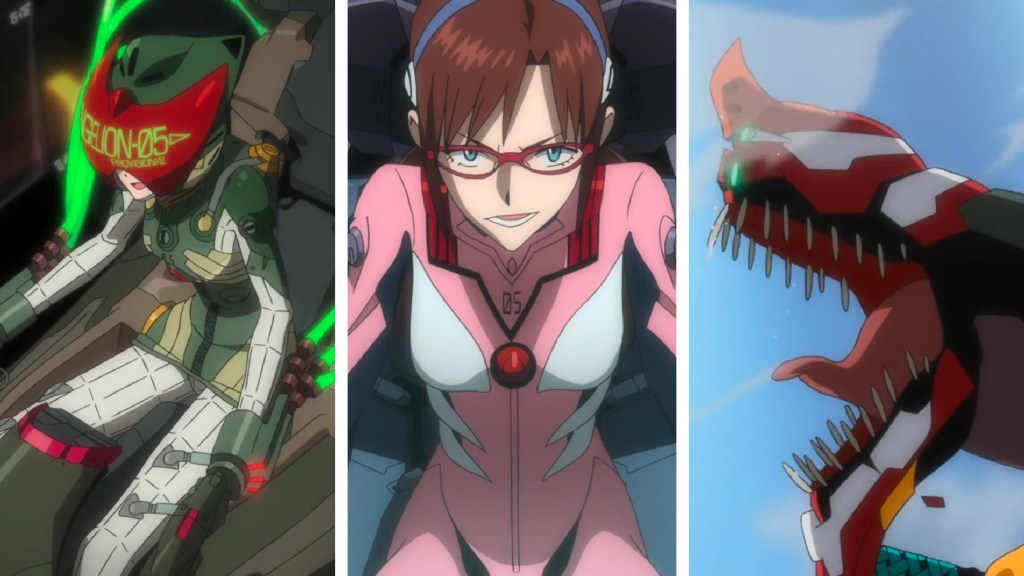
Mari’s role within the series essentially states, “Anyone can pilot an Eva. The Eva aren’t special. Shinji is not special.” Which is pretty contradictory as to why she (or anyone, for that matter) even cares so much about Shinji. As a pilot without any personal connection to the Eva, she’s somehow still able to not only pilot, but she blatantly disregards any boundaries Eva have. She ultimately treats them as disposable toys she can bend to her whim. Whatever units Mari pilots should, in theory, turn into Angels, considering she shouldn’t have any sync ratio since they lack the necessary components to connect her to them. She even deus ex machinas the Eva into randomly gaining angelic berserker powers at will. As such, Mari’s overpowered abilities and lack of true connection with the Eva basically just nullify Shinji’s role.
Mari’s Minor Role Intrinsically Overpowers Shinji’s
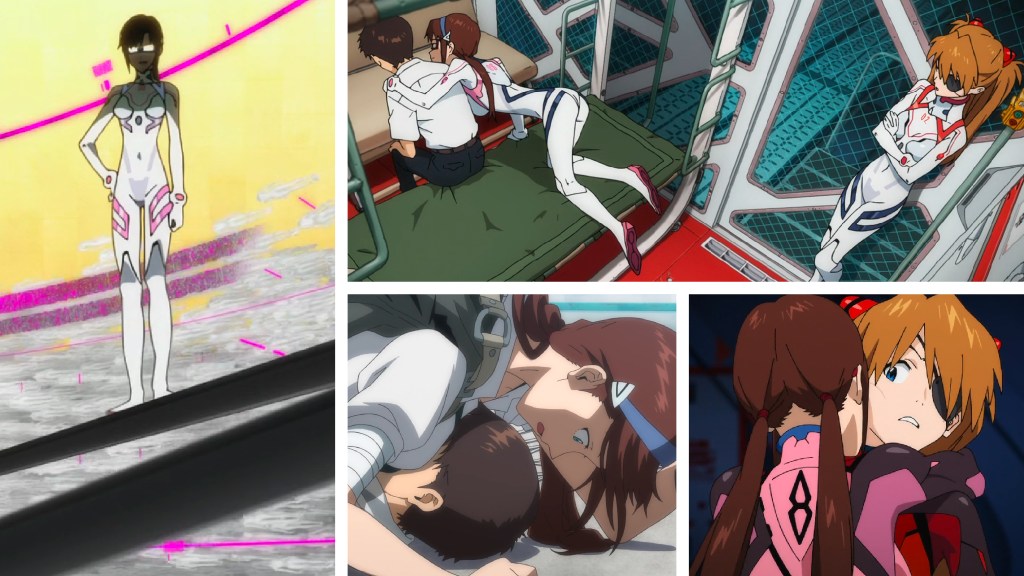
Throughout, Mari’s connection to Shinji is actually pretty minimal and surface-level. Which doesn’t make sense for the personal statement of Mari promising to retrieve him no matter what. Mari at one point, regarding Shinji, states, “I get it now, things just work out for him”. Which is somewhat both a true statement and yet contradictory. Yes, things are meant to ultimately work out for Shinji because he is meant to realize his own solipsism. But since this is the Rebuilds where that plot point doesn’t matter, neither should acknowledging such. The statement is the very reason why Shinji doesn’t need Mari. In fact, Mari represents the exact opposite of what the entire plot stood for.
Mari’s role just kind of bypasses any character growth that they’re supposed to have and that the series is originally based on. Rei and Asuka, which are meant to represent parts of Shinji himself, are ultimately sidestepped as unnecessary connections to him. Mari, unlike the other pilots and the whole point of the core of the series, basically flaunts not having trauma and just willing things to happen right out of the gate.
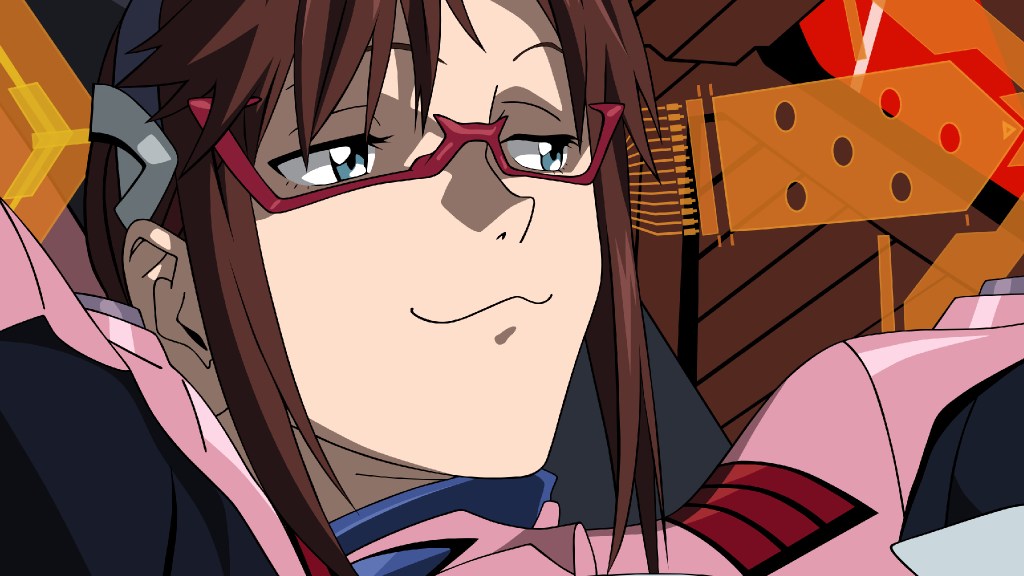
In the original ending, Shinji learns to find acceptance and happiness within himself, embracing the chance for inward maturation toward a better tomorrow that he himself can create despite his circumstances. Though she and Shinji actually rarely interact, Mari somehow acts as a conduit to provide Shinji’s happiness rather than him learning for himself, ultimately giving in to what Asuka accused him of: waiting for outside intervention to bring him happiness.
In the RebuildsShinji instead takes on a more passive role, a role wholly unsuitable to who should be basically taking on the role of God. The series is supposed to hinge on Shinji’s motivations and connections with others through the Eva, and yet Mari pops up as though she’s the solipsistic one. Frankly, trading Shinji’s relationships, introspection, ego death, and realization of solipsism isn’t just a high price to pay for such an unnecessary character like Mari to act as a wholly minor plot point — it’s blatantly insulting.
What are your thoughts on Mari as a character? Let us know in the comments!